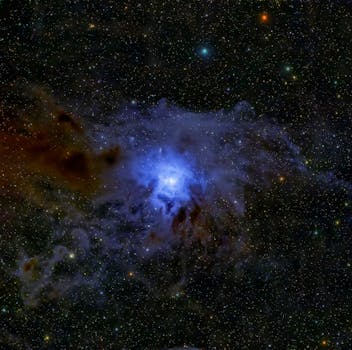
“
Soaring Through the Cosmos: The Power of Imagination Beyond the Stars
Introduction to the Cosmos and Imagination
The power of imagination is a fascinating and complex phenomenon that has been studied and explored by scientists, philosophers, and artists for centuries. Imagination is the ability to generate mental images or concepts that are not necessarily based on reality. It is a fundamental aspect of human cognition and plays a crucial role in creativity, problem-solving, and innovation. In this article, we will explore the power of imagination in the context of the cosmos and the stars.
Section 1: Understanding the Cosmos
The cosmos, also known as the universe, is the vast expanse of time, space, and matter that encompasses all existence. It is estimated to be around 13.8 billion years old and contains countless stars, galaxies, and other celestial objects. The study of the cosmos is known as astronomy, and it has been a major area of research and exploration for centuries. From the early astronomers who used telescopes to study the night sky to the modern-day space agencies that launch satellites and spacecraft to explore the universe, our understanding of the cosmos has grown exponentially. For more insights, check out Cosmic Creativity.
Section 2: The Power of Imagination in Space Exploration
The power of imagination has played a significant role in space exploration and the study of the cosmos. Imagination has allowed scientists and engineers to conceptualize and design new technologies, missions, and experiments that have helped us to better understand the universe. From the idea of sending humans to the moon to the concept of establishing a human settlement on Mars, imagination has been a driving force behind many space-related innovations. Furthermore, imagination has also been used to create realistic simulations and models of celestial objects and events, which has helped scientists to make new discoveries and gain a deeper understanding of the cosmos. This theme resonates with the idea of stargazing and storytelling, where imagination elevates our understanding of the universe.
Section 3: Imagination and the Search for Extraterrestrial Life
One of the most intriguing aspects of the cosmos is the possibility of extraterrestrial life. The search for life beyond Earth has been an ongoing effort for decades, with scientists using a variety of methods to search for signs of life, such as the detection of biosignatures in the atmospheres of exoplanets. Imagination has played a significant role in this search, as scientists have had to imagine and conceptualize what extraterrestrial life might look like and how it might communicate with us. From the idea of intelligent alien civilizations to the concept of microbial life on other planets, imagination has allowed scientists to think outside the box and consider a wide range of possibilities.
Section 4: Imagination and the Future of Space Exploration
As we look to the future of space exploration, imagination will continue to play a vital role in shaping our understanding of the cosmos and our place within it. With the advent of new technologies, such as advanced propulsion systems and artificial intelligence, the possibilities for space exploration are becoming increasingly vast. Imagination will allow us to conceptualize and design new missions and experiments that will take us deeper into the universe and help us to uncover its secrets. Furthermore, imagination will also help us to consider the ethical and philosophical implications of space exploration, such as the possibility of encountering other forms of life and the responsibility that comes with being a part of the cosmos.
Conclusion
In conclusion, the power of imagination is a powerful tool that has allowed us to explore and understand the cosmos in ways that were previously unimaginable. From the early astronomers who used imagination to conceptualize the universe to the modern-day scientists who use imagination to design new technologies and missions, imagination has been a driving force behind many breakthroughs in space exploration. As we look to the future, it is clear that imagination will continue to play a vital role in shaping our understanding of the cosmos and our place within it.
Takeaways
- The power of imagination is a fundamental aspect of human cognition and plays a crucial role in creativity, problem-solving, and innovation.
- Imagination has been used to create realistic simulations and models of celestial objects and events, which has helped scientists to make new discoveries and gain a deeper understanding of the cosmos.
- Imagination has played a significant role in the search for extraterrestrial life, allowing scientists to conceptualize and consider a wide range of possibilities.
- Imagination will continue to play a vital role in shaping our understanding of the cosmos and our place within it, as we look to the future of space exploration.






